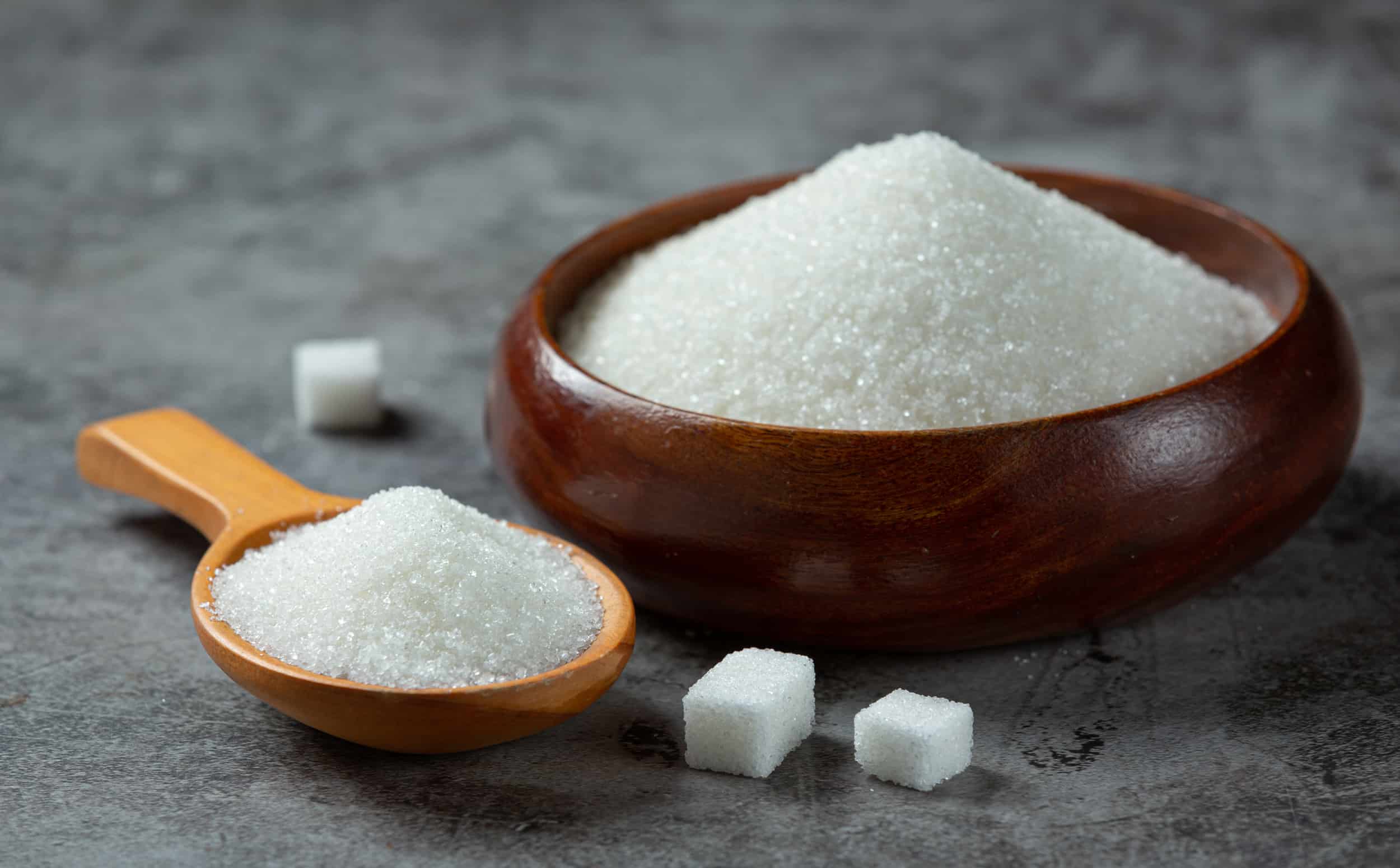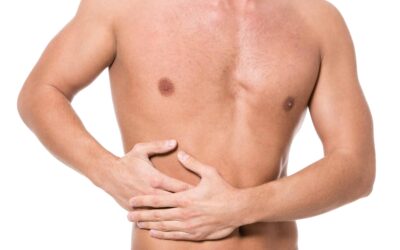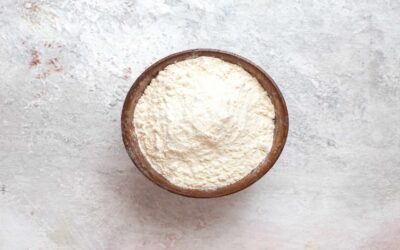People everywhere around the world love sweets and sugary food items a lot. Whether we talk about sweets, chocolates, or deserts, everyone just loves to eat them. But we cannot deny the fact that excess of anything is dangerous.
Eating sugar in large quantities within our diet is harmful to our health. Health-conscious individuals switch to low-calorie sugar substitutes in order to maintain good health. But there are many sugar addicts who fail to resist all the sugary food items. Due to this, people start using artificial sweeteners, like sucralose, in order to satisfy their cravings.
Now the question that arises here is the following: are these artificial sweeteners like sucralose bad for you? Do they harm your body or not? Are they safe to be used? To answer all such queries first we need to go deep into the details of this supplement.
WHAT IS SUCRALOSE?
Sucralose is also known as E955, in Europe. It is an artificial sweetener. Many people around the world, either diabetic patients or individuals who are health conscious but want to satisfy their cravings for sweets, use sucralose as a substitute for sugar in their diet.
Sucralose is noncaloric. In our body, the majority of the ingested sucralose is not digested. It is sweeter than any other artificial sweetener. It is reported that when comparing sucralose with aspartame and acesulfame potassium, sucralose proved to be three times sweeter than both.
History of Sucralose
Scientists discovered sucralose in 1976. The two scientists who discovered sucralose were Tate and Lyle. Scientists were studying the uses of synthetic derivatives of sucrose and the uses of sucrose itself. After the chlorination process of sucrose, sucralose was discovered.
This discovery was further studied by different individuals and institutions. The first country which approved the use of an artificial sweetener sucralose was Canada. Later on, different regulatory authorities tested and approved its use in different countries.
Chemical Composition
As compared to sucrose, sucralose is about 320 to 1000 times sweeter. After the completion of a multistep chemical process, sucralose is formed. It is made up of real sugar. Sucrose undergoes chlorination to give a 1, 6-dichloro-1, 6-deoxyfructose, 4-chloro–4-deoxygalactose disaccharide. After the alteration of the basic structure of sugar, we get sucralose which is 600 times sweeter in taste and calorie-free as well.
Uses of Sucralose
Sucralose is an artificial sweetener that is used by a large number of people all around the world. It is calorie-free and both diabetic and non-diabetic individuals use it. It is safe to be used as it does not cause dental cavities.
It is mainly used in food items and beverages as well. There are many branded products in which sucralose is used. Such products include different candies, soft drinks, and many other different food products. In canned food products, sucralose is also used and proves to be a great replacement for high-calorie corn syrup-based additives.
People around the world use sucralose as a sugar supplement in their diet to satisfy their cravings. While on the other hand there are some diabetic patients who cannot eat sugar so they use sucralose as an artificial sweetener in their food.
Sucralose is available in a granulated form that resembles actual sugar. It can easily be used in making different food items. Sucralose is not hygroscopic. Granulated sucralose mix contains filters all of which are soluble in water.
And being non-hygroscopic, sucralose can be used in baking food items that are of a less dense texture and drier. But it is reported that it is not beneficial to be used in every baked item. A study claims that at a higher temperature, incorporating sucralose with glycerol is extremely dangerous and can produce such substances called chloropropanols that may increase the risk of cancer. More research has yet to be carried out in this regard. To be on the safe side, it is better to avoid using artificial sweeteners in baked food items.
HEALTH EFFECTS OF CONSUMING SUCRALOSE
Sucralose is approved by several regulatory bodies around the world. Including the Food and Drug Administration, several other regulatory organizations have accepted sucralose and approve its use by the public.
However, it is of paramount importance to note that only a limited amount of sucralose is beneficial to be used by a person throughout their life. After crossing that minimal amount, sucralose may impose its adverse effects on the human body.
Weight Loss
Many people replace sugar with artificial sweeteners. They use sucralose as a supplement of sugar in order to control their calorie intake and maintain a good health profile and in order to lose weight.
Many types of research have been carried out to check the impact of sucralose on losing the weight of a person. Different conclusions have been drawn. Some findings claim that there is no effect of sucralose on the weight of a person and no change in the weight of such individuals who use sucralose has been observed.
On the other hand, some researchers claim that a slight loss in weight is recorded in those individuals who switch to artificial sweeteners and replace sugar with them. But the weight loss was quite minimal, not more than 2 pounds.
Blood Sugar Level
When we eat sugar, our body releases a hormone called insulin which controls the blood sugar levels. People suffering from diabetes either lack this hormone in their bodies or in some cases the hormone “insulin” is released in their bodies but does not work properly.
People have misunderstood that artificial sweetener like sucralose do not produce the same effect as sugar and hence can be used as a sugar supplement by diabetic patients.
Researchers conclude that according to the observations made up till now, no such effect of artificial sweeteners on the blood sugar level has been observed. But a study claims that both insulin levels and blood sugar levels are raised by the use of artificial sweeteners in obese people, who do not normally take such supplements.
But to get a confirmed idea about it, experts suggest carrying out more research in this regard.
Gut Health
Our gut contains many friendly bacteria. These friendly bacteria contribute a lot to the process of digestion. These friendly bacteria not only improve digestion but also reduce the risks of several harmful illnesses and boost up our body’s immune system as well.
The question that people frequently ask is whether the use of sucralose has any impact on these bacteria. In this regard, a study on rats claims that sucralose may have a negative impact on these bacteria. It negatively impacts their existence and reduces them in numbers. It is also observed that sucralose has a negative impact on the friendly bacteria in the gut while the harmful bacteria remain unaffected. While talking about humans, detailed research and thorough study have yet to be done.
ENVIRONMENTAL IMPACT OF SUCRALOSE
Once released into the environment, sucralose is digestible by a number of microorganisms. Sucralose which is present in wasteful water effluents is little or not totally affected by the sewage treatment. Heating sucralose at a very high temperature results in the production of many harmful organic pollutants like polychlorinated dibenzo –p– dioxins and many others.
Due to the increased use of artificial sweeteners by people all around the world, sucralose is reported to be present in nature. It is claimed by the experts that up till now no such ecotoxicological effects of sucralose have been reported yet. But the experts have warned that if the compound is only slowly degraded in nature, then there might be a continuous increase in its level in nature. In natural waters also the presence of sucralose has been reported. It is observed that it has no impact on the process of early life development of different animals but its effects on other organisms and species are still not known.
IS SUCRALOSE SAFE OR BAD FOR YOU?
After analyzing all the facts and figures we can conclude that it is a controversial statement whether the use of an artificial sweetener like sucralose is safe or not.
Different regulatory organizations including the Food and Drug Administration and many others have approved sucralose and its use by the people. But on the other hand, we have also observed the effects of sucralose on health.
For some individuals, it does not affect their blood sugar level but on the other hand, it is also reported that it increases the blood sugar level in some individuals. It also has a harmful and negative impact on the bacterias in the gut of rats but in the case of humans, detailed studies are yet to be carried out. Considering cooking and baking, incorporating sucralose is not safe at all as at higher temperatures it produces harmful compounds.
In such a controversial scenario, the only thing the consumers can do is to remain extra careful about such products and we should minimize their use up to the greatest possible extent. Always consult doctor or medical professional for personal health advice before making any changes to your diet.
KEY TAKEAWAYS
There is no confirmed statement regarding the harmful effects of sucralose on humans. If it suits your taste buds and your body can handle it adequately without reporting any harmful or adverse effects, then you can use it in your diet after consulting your doctor.
But in the case of cooking and baking at high heat or temperatures, it is better to avoid using sucralose.
Also, if it causes or results in any discomfort in your health or you encounter any issue related to your gut then you should consult with your medical professional.
Article Sources
HealthxTips is committed to delivering content that adheres to highest standard for accuracy, sourcing and objective analysis.
HealthxTips uses only high-quality and trustworthy sources to support the facts in our articles.
1. Abou-Donia, M. B., El-Masry, E. M., Abdel-Rahman, A. A., McLendon, R. E., & Schiffman, S. S. (2008). Splenda alters gut microflora and increases intestinal p-glycoprotein and cytochrome p-450 in male rats. Journal of toxicology and environmental health. Part A, 71(21), 1415–1429. https://doi.org/10.1080/15287390802328630
2. AlDeeb, O. A., Mahgoub, H., & Foda, N. H. (2013). Sucralose. Profiles of drug substances, excipients, and related methodology, 38, 423–462. https://doi.org/10.1016/B978-0-12-407691-4.00010-1
3. Anja R. (2010, January 1). Thermal degradation of sucralose and its potential in generating chloropropanols in the presence of glycerol. ScienceDirect.com. https://www.sciencedirect.com/science/article/abs/pii/S0308814609005378
4. Magnuson, B. A., Roberts, A., & Nestmann, E. R. (2017). Critical review of the current literature on the safety of sucralose. Food and chemical toxicology : an international journal published for the British Industrial Biological Research Association, 106(Pt A), 324–355. https://doi.org/10.1016/j.fct.2017.05.047
5. Makarem, N., Bandera, E. V., Lin, Y., Jacques, P. F., Hayes, R. B., & Parekh, N. (2018). Consumption of Sugars, Sugary Foods, and Sugary Beverages in Relation to Adiposity-Related Cancer Risk in the Framingham Offspring Cohort (1991-2013). Cancer prevention research (Philadelphia, Pa.), 11(6), 347–358. https://doi.org/10.1158/1940-6207.CAPR-17-0218
6. Miller, P. E., & Perez, V. (2014). Low-calorie sweeteners and body weight and composition: a meta-analysis of randomized controlled trials and prospective cohort studies. The American journal of clinical nutrition, 100(3), 765–777. https://doi.org/10.3945/ajcn.113.082826
7. Pepino, M. Y., Tiemann, C. D., Patterson, B. W., Wice, B. M., & Klein, S. (2013). Sucralose affects glycemic and hormonal responses to an oral glucose load. Diabetes care, 36(9), 2530–2535. https://doi.org/10.2337/dc12-2221
8. Schiffman, S. S., & Rother, K. I. (2013). Sucralose, a synthetic organochlorine sweetener: overview of biological issues. Journal of toxicology and environmental health. Part B, Critical reviews, 16(7), 399–451. https://doi.org/10.1080/10937404.2013.842523
9. Weihrauch, M. R., & Diehl, V. (2004). Artificial sweeteners–do they bear a carcinogenic risk?. Annals of oncology : official journal of the European Society for Medical Oncology, 15(10), 1460–1465. https://doi.org/10.1093/annonc/mdh256
10. Yanina Pepino M. (2013, September 1). Sucralose affects glycemic and hormonal responses to an oral glucose load. Diabetes Care. https://care.diabetesjournals.org/content/36/9/2530








0 Comments